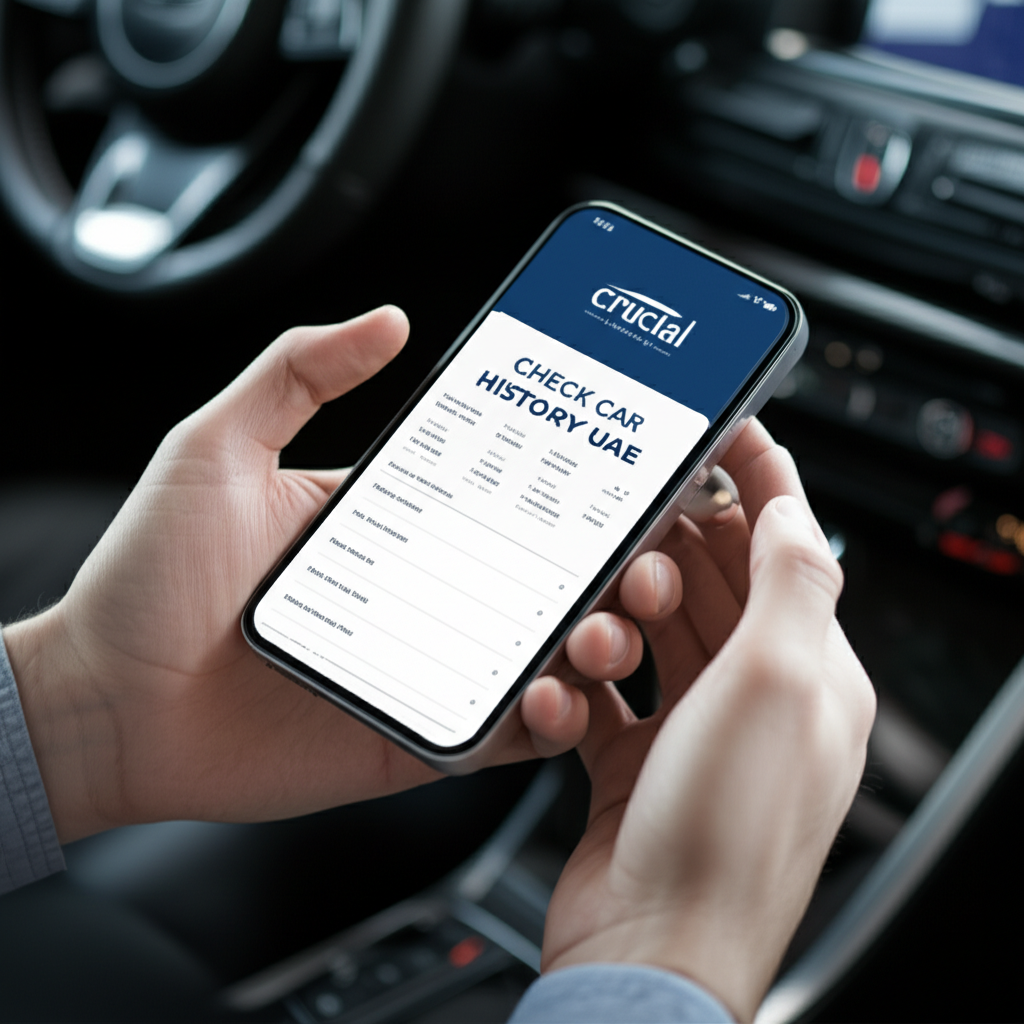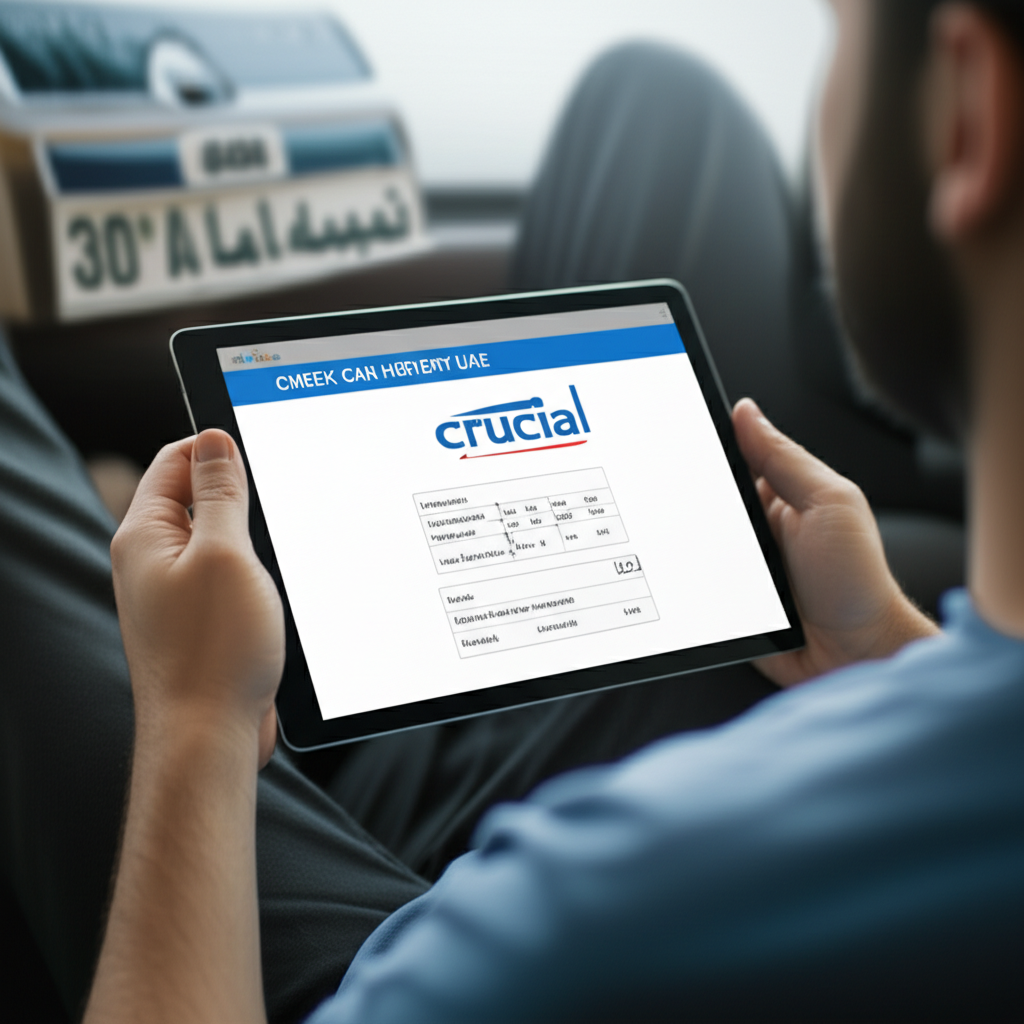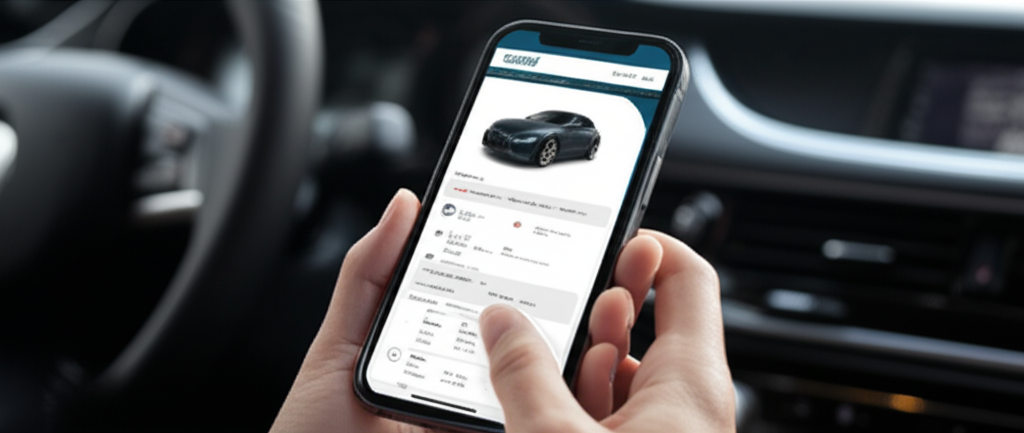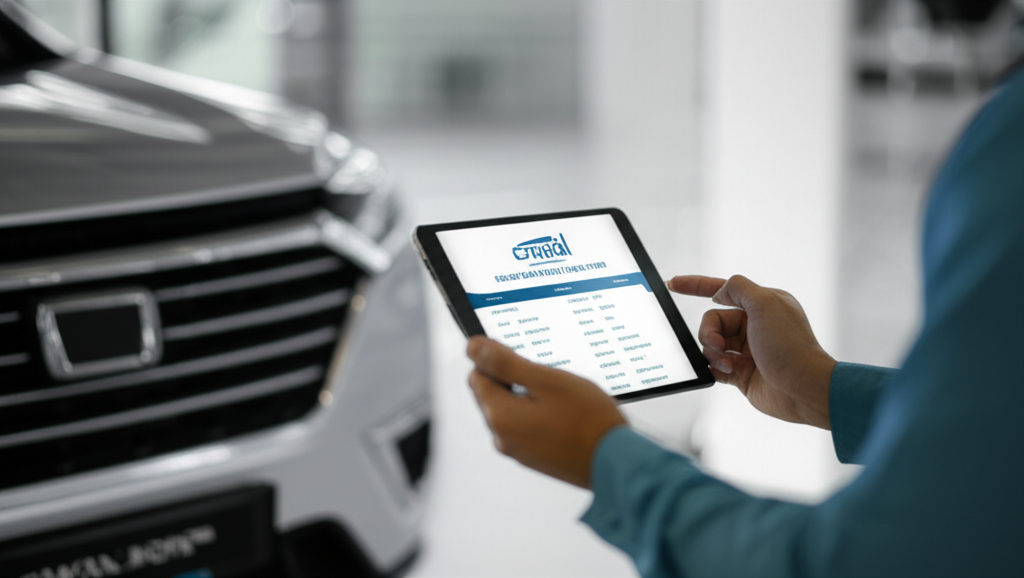Crucial: Check Car History UAE – Essential Guide

Before buying a used car in the UAE, always check its history to avoid costly surprises. This guide explains the simple steps to access crucial vehicle information, ensuring a safe and informed purchase.
Buying a used car in the UAE can be a fantastic way to save money, but it also comes with a few potential pitfalls. One of the most important steps, often overlooked by beginners, is thoroughly checking the vehicle’s history. It’s like looking under the hood of a deal before you commit! Don’t worry if this sounds a bit daunting; it’s quite straightforward once you know where to look. We’ll walk you through everything you need to know, making sure you feel confident and prepared to make a smart decision. Let’s dive in and uncover the secrets to a hassle-free used car purchase!
Why Checking Car History in the UAE is Essential

When you’re eyeing a pre-owned vehicle in the United Arab Emirates, knowing its past is absolutely critical. Think of it as a car’s resume – it tells you about its experiences, its well-being, and any significant events it’s been through. Without this information, you could be unknowingly buying a car with hidden problems, outstanding fines, or a history of serious accidents that could compromise its safety and your finances. In the UAE, a robust system is in place to provide this transparency, and understanding how to access it is a game-changer for any buyer.
Here’s why it’s so important:
- Safety First: A car’s accident history can reveal structural damage or previous repairs that might not be obvious. This directly impacts your safety on the road.
- Financial Protection: Unpaid fines, outstanding loans, or salvage titles can lead to significant financial headaches for the new owner. Checking the history can help you avoid inheriting these problems.
- Accurate Valuation: Knowing the car’s true condition and history helps you negotiate a fair price and avoid overpaying for a vehicle that might have issues.
- Peace of Mind: Ultimately, a thorough history check provides the confidence and reassurance that you’re making a sound investment.
Understanding the UAE’s Vehicle Registration System

The UAE has a centralized system for managing vehicle registrations and related information. The primary authority responsible for this is the Emirates ID, which is linked to the Ministry of Interior (MOI) and individual traffic departments within each Emirate.
These authorities maintain detailed records for every registered vehicle, including:
- Ownership history
- Registration status
- Technical inspection results
- Traffic violations and fines
- Accident records (if reported and documented)
The good news is that much of this information is accessible to the public, primarily through official channels, to promote transparency and protect buyers.
How to Check Car History in UAE: Step-by-Step Guide

There are several reliable ways to check a car’s history in the UAE. The most official and comprehensive methods involve using the government portals. Let’s break down the process:
Method 1: Using the Official Ministry of Interior (MOI) Portal
The MOI provides a comprehensive service to check vehicle details, including traffic violations and fines. This is usually the first and most crucial step.
Step 1: Visit the MOI UAE Website or Use the App
You can access the MOI services through their official website or by downloading the MOI UAE app. The app is often more convenient for quick checks.
- Website: Ministry of Interior Services
- App: Search for “MOI UAE” on your smartphone’s app store (iOS and Android).
Step 2: Navigate to the Vehicle Services Section
Once on the website or app, look for a section related to “Traffic Services” or “Vehicle Services.” You’ll typically find an option like “Inquire about Traffic Fines” or “View Vehicle Information.”
Step 3: Enter Vehicle Details
You will need specific information about the vehicle you are interested in. This usually includes:
- License Plate Number: The full number and the Emirate it’s registered in.
- Driver’s Identification Number (Optional): Sometimes required for personal fine inquiries, but for vehicle history, focus on the license plate.
Step 4: Complete the Inquiry
After entering the required details, you might need to complete a captcha and then click “Submit” or “Inquire.”
Step 5: Review the Information
The system will display information about the vehicle, primarily focusing on any outstanding traffic fines, the vehicle’s registration expiry date, and its technical inspection status. This is vital for understanding if the car has a clean record regarding government regulations.
Method 2: Through Individual Emirate Traffic Departments (e.g., Dubai Police, Abu Dhabi Police)
While the MOI portal is a good starting point, each Emirate’s traffic department also offers specific services. Some might provide slightly more detailed information or have dedicated platforms.
Dubai Police (Roads and Transport Authority – RTA)
Dubai has a very robust system through the RTA.
- Website: Visit the RTA Dubai website.
- Services: Look for “Vehicles & Drivers” or “Services.”
- Check Fines/History: You can often check for fines and sometimes access basic vehicle details using the license plate number. The RTA also offers official vehicle inspection services that can provide a detailed report.
Abu Dhabi Police
For vehicles registered in Abu Dhabi:
- Website: Visit the Abu Dhabi Police website.
- Services: Navigate to “Traffic and Licensing Services.”
- Inquire about Fines: Similar to the MOI, you can check for traffic violations and vehicle status.
Important Note: These government portals are excellent for checking unpaid fines and registration status. However, they might not always provide a detailed history of accidents or major mechanical issues unless those resulted in officially recorded fines or inspections.
Method 3: Utilizing Third-Party Vehicle History Report Services
For a more comprehensive report that might include accident history, previous ownership, and sometimes even mileage discrepancies, you can consider specialized third-party services. While these are not official government channels, some are authorized or use data aggregated from various sources.
How they generally work:
- Find a Reputable Service: Search for “UAE vehicle history report” or “car VIN check UAE.” Be sure to choose a service with good reviews and clear terms of service.
- Provide Vehicle Information: You’ll typically need the Vehicle Identification Number (VIN) – a unique 17-digit code found on the car itself (usually on the dashboard near the windshield, driver’s side doorjamb, or on the registration papers) and on the license plate.
- Purchase the Report: These services usually charge a fee for a detailed report.
- Review the Report: The report can offer deeper insights into the car’s past.
Caveat: The accuracy and completeness of third-party reports can vary. Always cross-reference information with official sources when possible.
Method 4: Independent Pre-Purchase Inspection (PPI)
This is arguably the most crucial step for understanding a used car’s mechanical and structural integrity, regardless of its documented history. This isn’t about checking a digital record but about a physical, professional assessment.
What is a PPI?
A pre-purchase inspection is a thorough examination of the used car by a qualified, independent mechanic or a specialized inspection center. They will put the car on a lift, check all major components, and look for signs of wear, damage, or potential problems.
Steps for a PPI:
- Find a Trusted Mechanic/Center: Ask for recommendations from friends, family, or online forums. Choose a place that is not affiliated with the seller.
- Arrange the Inspection: Schedule the inspection at a time that works for you and the seller. You will typically need to take the car to their facility.
- Pay for the Inspection: You will be responsible for the cost of the inspection, which is a small price to pay for peace of mind. Costs can range from AED 300 to AED 1000 or more, depending on the depth of the inspection.
- Review the Report: The mechanic will provide a detailed report outlining the car’s condition, any existing issues, and recommendations for repairs. This report is invaluable for negotiation and making your final decision.
Where to get a PPI in the UAE:
Many reputable service centers across the UAE offer PPIs. Some popular options include:
- ADNOC Distribution Vehicle Inspection Centers: These are widely available and offer official inspection services.
- DEKRA UAE: A global leader in vehicle testing and inspection.
- Independent Garages: Many trusted local workshops also offer this service.
Key things a PPI should cover:
- Engine and transmission health
- Braking system
- Suspension and steering
- Tires and wheels
- Electrical systems
- Bodywork and frame for accident damage
- Leaks and fluid levels
- Air conditioning and other amenities
What Information Can You Expect?
The depth of information you can access depends on the method used. Here’s a breakdown:
| Information Type | MOI/Emirate Portal | Third-Party Report | Pre-Purchase Inspection (PPI) |
|---|---|---|---|
| Traffic Fines/Violations | Yes (Primary) | Often | No |
| Registration Status & Expiry | Yes (Primary) | Yes | No |
| Technical Inspection History | May vary | May vary | No (but can identify current issues) |
| Accident History (Reported) | Limited/None | Potentially (if reported to authorities/insurers) | Yes (detects physical evidence) |
| Ownership Transfers | Limited/None | Potentially | No |
| Kilometer Reading (Odometer) | No | Potentially (if recorded at service/inspections) | Yes (can detect tampering) |
| Mechanical Condition | No | No | Yes (Primary) |
| Structural Damage | No | No | Yes (Primary) |
| Outstanding Loans/Liens | No | Potentially (varies by service) | No |
Tips for a Smooth Car History Check
Here are some practical tips to make your car history check process as smooth as possible:
- Get the VIN: Always ask for the Vehicle Identification Number (VIN) from the seller. This is the most reliable way to get accurate information.
- Don’t Rely on One Source: Combine information from official portals, potential third-party reports, and, most importantly, a thorough PPI.
- Inspect Documents Carefully: Ask to see the vehicle’s original registration card (Mulkiyah) and any service records.
- Be Wary of Sellers Who Refuse Checks: A seller who is hesitant to allow a history check or a PPI is a major red flag.
- Factor in Inspection Costs: Budget for a PPI. It’s a small investment that can save you thousands in potential repairs.
- Check for Recalls: While not always readily available through standard history checks, you can sometimes check for manufacturer recalls for the specific model of the car.
Common Red Flags to Watch Out For
During your history checks, be vigilant for these warning signs:
- Numerous Unpaid Fines: Indicates a previous owner who was not responsible.
- Salvage or Rebuilt Titles (if applicable/disclosed): These cars have been declared a total loss by an insurer due to severe damage and have been repaired. They can be less safe and harder to insure.
- Inconsistent Mileage Records: If the mileage recorded in different reports or on the odometer doesn’t match up, it could indicate odometer tampering.
- Signs of Major Accidents in PPI: Look for uneven panel gaps, fresh paint on older parts, or signs of frame damage.
- Seller Reluctance: As mentioned, any hesitation from the seller is a cause for concern.
Frequently Asked Questions (FAQ)
Here are some common questions beginner buyers have about checking car history in the UAE:
Q1: How much does it cost to check a car’s history in the UAE?
A1: Checking for traffic fines and basic registration details through the MOI or RTA portals is usually free. Third-party history reports typically cost between AED 100-300. A Pre-Purchase Inspection (PPI) can range from AED 300-1000+.
Q2: Can I check if a car has been in an accident?
A2: Official portals primarily show traffic violations. For accident history, you might find information in third-party reports if the accident was officially reported and documented. The most reliable way to detect accident damage is through a thorough Pre-Purchase Inspection (PPI) by a mechanic.
Q3: What is the VIN, and where do I find it?
A3: The VIN (Vehicle Identification Number) is a unique 17-character code that identifies a specific car. You can usually find it on the dashboard near the windshield (visible from outside), on the driver’s side doorjamb sticker, or on the car’s registration documents.
Q4: Do I need the seller’s permission to check a car’s history?
A4: For public information like traffic fines and registration status, you usually only need the license plate number. For more detailed reports from third-party services or a PPI, you will need the VIN and the seller’s cooperation to allow the inspection.
Q5: Is a Pre-Purchase Inspection (PPI) really necessary?
A5: Absolutely! While history reports tell you about the car’s administrative past, a PPI tells you about its mechanical and structural health. It’s the best way to uncover hidden problems that could cost you dearly later.
Q6: What if the car has outstanding fines? Can I still buy it?
A6: You can technically buy a car with fines, but the fines will transfer to the new owner upon registration. It’s much better to negotiate with the seller to clear all outstanding fines before you finalize the purchase. The registration transfer process will likely be blocked until fines are paid.
Conclusion
Navigating the used car market in the UAE can feel like a maze, but armed with the knowledge of how to check a car’s history, you’re already ahead of the game. By utilizing official government portals for traffic violations and registration data, considering third-party reports for deeper insights, and always, always opting for a professional Pre-Purchase Inspection, you’re setting yourself up for a successful and confident purchase. Remember, a little due diligence now can save you a lot of stress and money down the road. Happy car hunting!
